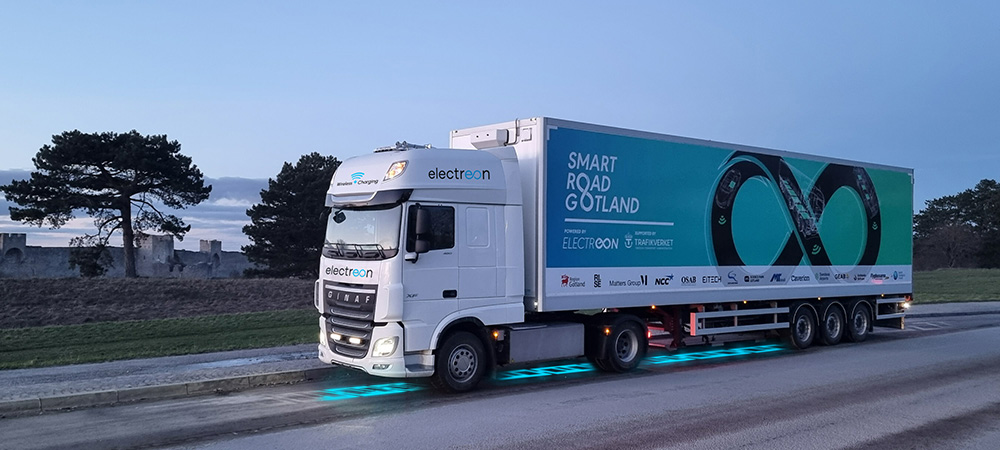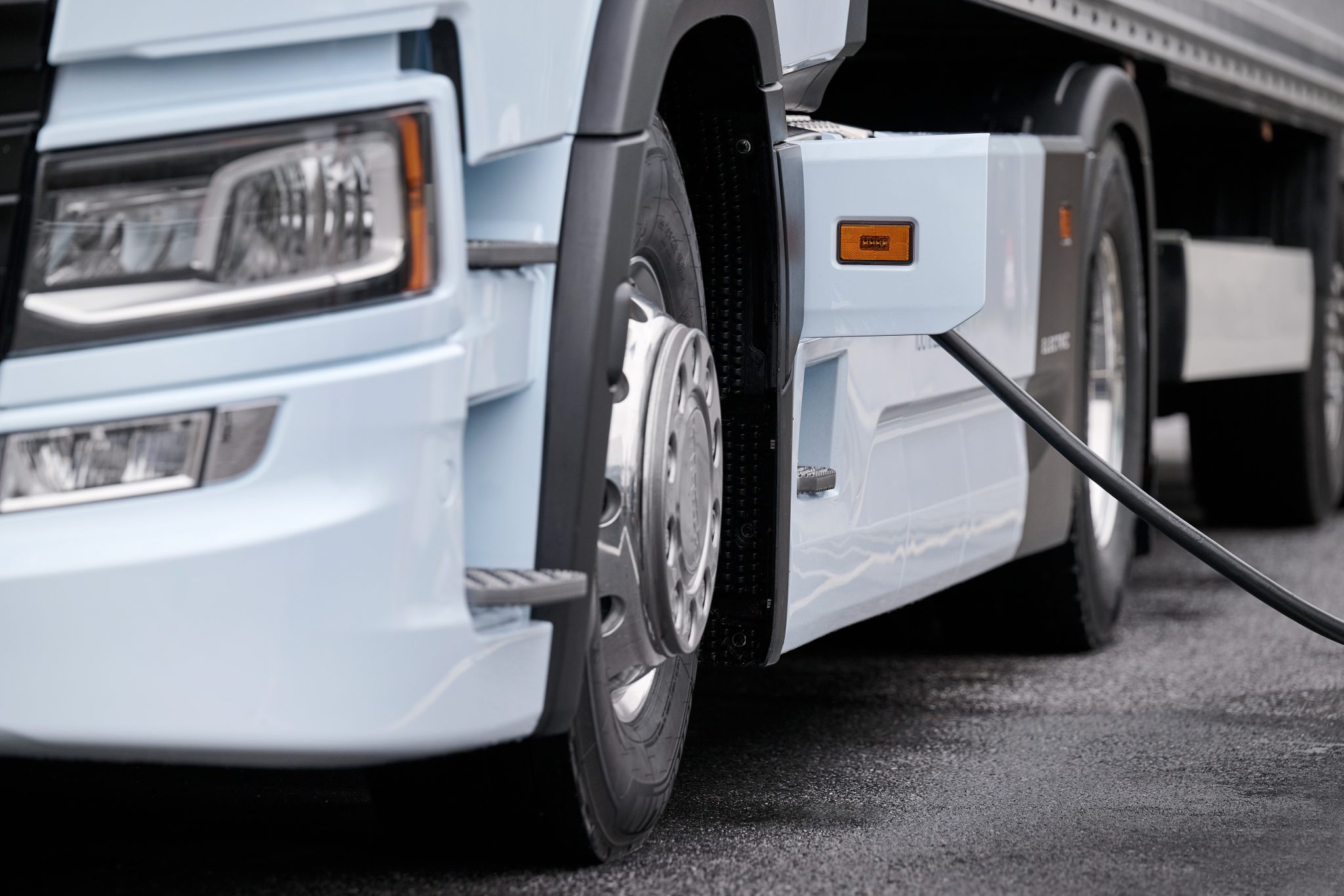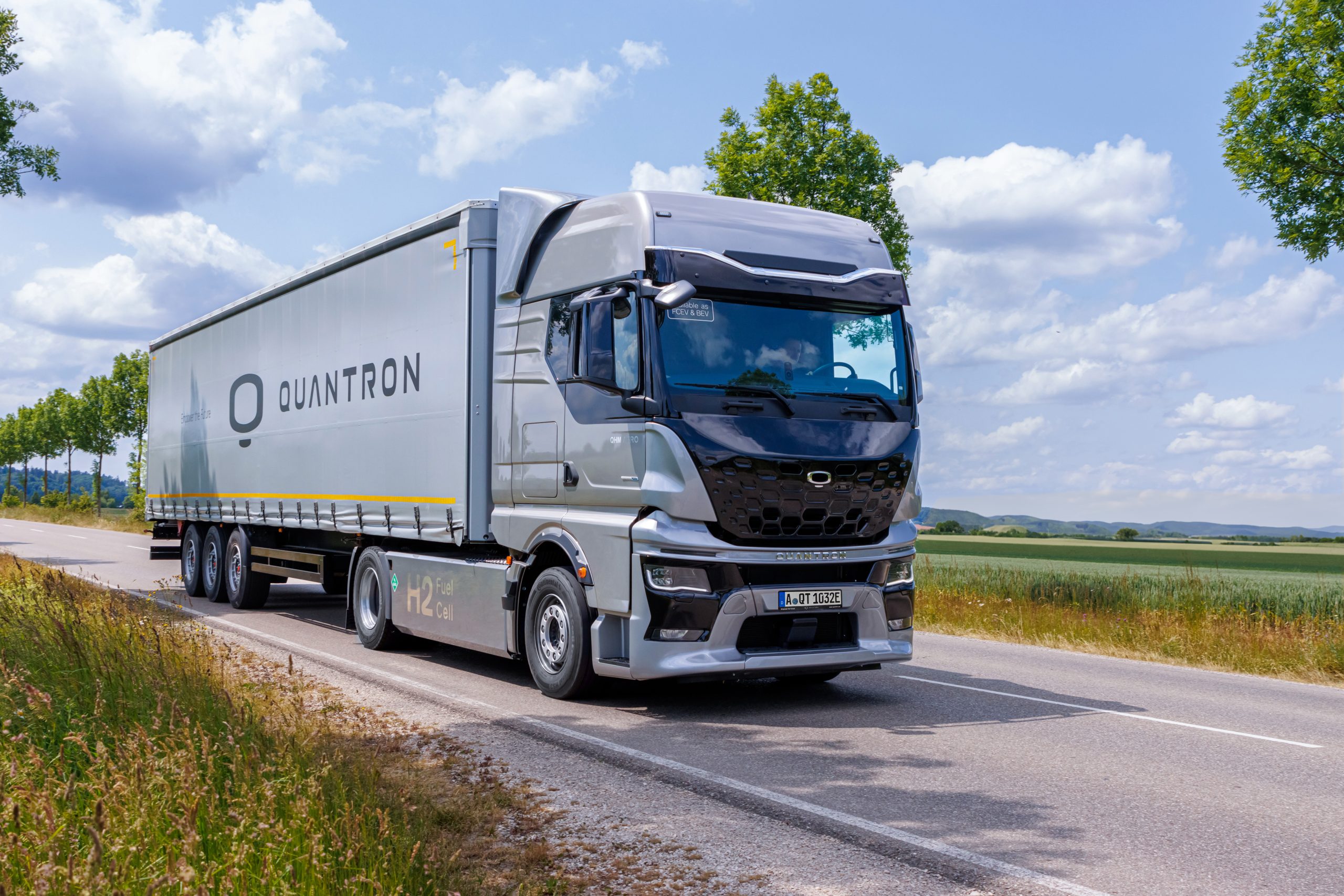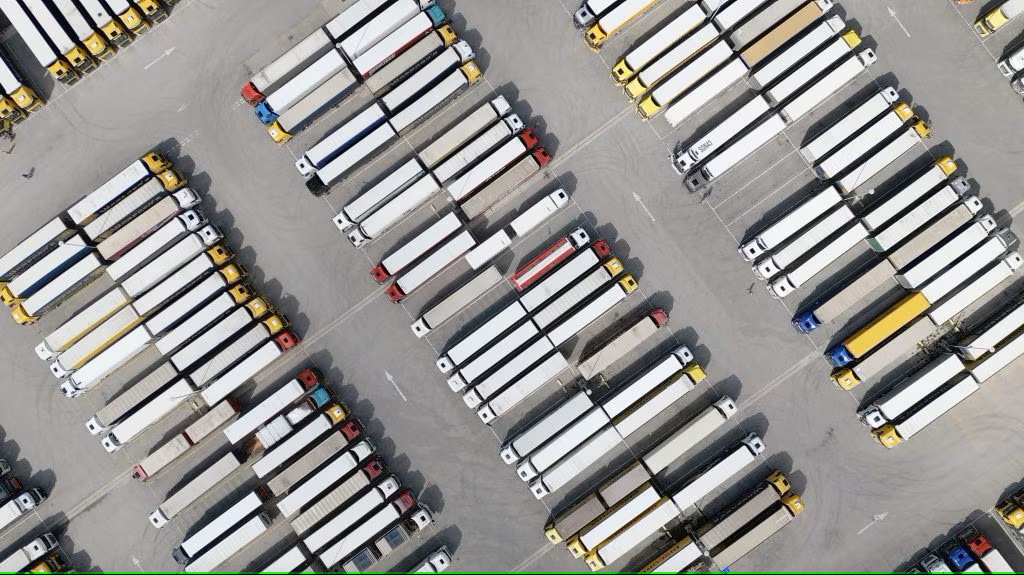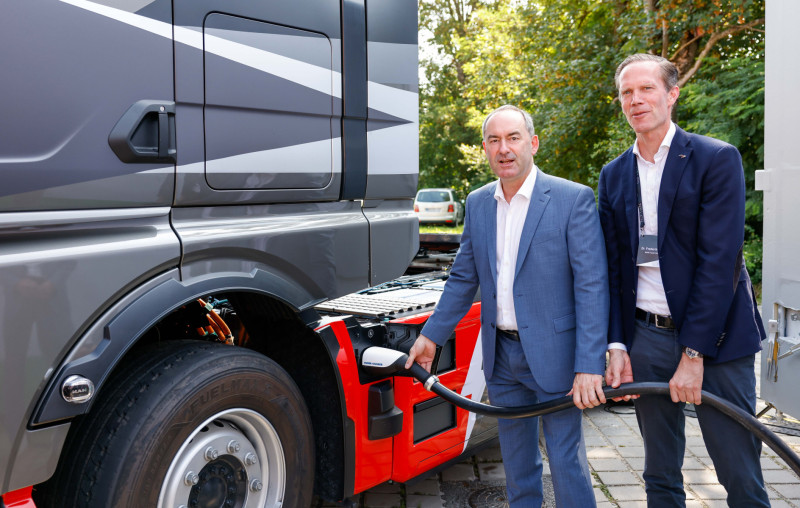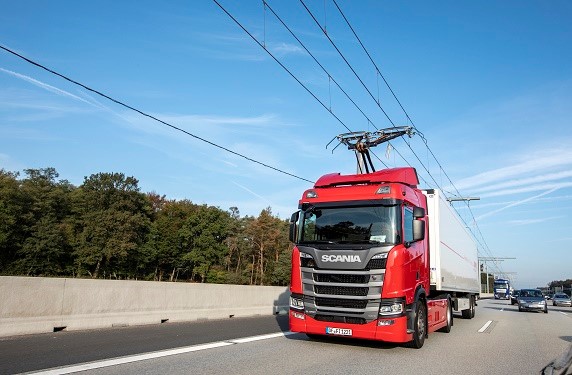
The technology - which is already being tested on several routes in Germany – uses a pantograph on the top of converted diesel-electric lorries that raises up and connects with overhead electric cables to power the vehicle while it is on the road. The German and UK initiatives are being led by consortiums featuring major players such as Siemens and Costain.
In July 2021 the UK Department for Transport awarded funding to a consortium to lead the UK’s first ever study on the electrification of long-range trucks with dynamic charging, using overhead wires on motorways.
The study is part of the £20m put aside for zero emission road freight trials under the government's Transport Decarbonisation Plan (TDP) and was awarded based on the Costain-led consortium's expertise in sustainable transport. It includes Siemens Mobility, Scania, The Centre for Sustainable Road Freight (Cambridge University and Heriot-Watt University), ARUP, Milne Research, SPL Powerlines, CI Planning, BOX ENERGI and Possible.
Costain’s Sue Kershaw, MD transportation, said: “This study is another important step towards understanding how industry could work together to tackle one of the largest carbon emission producers in the country and create a cleaner, greener and more efficient road freight network across the UK. Bringing our heritage in complex programme delivery and expertise in integrating technology to this consortium is part of our Climate Change Action Plan to implement change and create a green transport future through collaboration.”
HGVs currently emit 18% of all road vehicle CO2 emissions in the UK, despite only representing 1.2% of the total number of vehicles on the road and 5% of the total miles driven. They are, however, essential to the health of the UK economy, with the TDP plan citing them as “critical to our economic wellbeing,” transporting 98% of the UK’s food, consumer, and agricultural products across the country. Because of the limits of existing technology, the plan says “removing [road freight] emissions require the development and deployment of clean technologies.”
The consortium has proposed an ‘electric road system’, using the Siemens Mobility ‘eHighway’ technology, as the fastest, lowest carbon and most cost-effective route to decarbonising the UK's road freight industry and delivering cleaner air. The nine-month study was initiated in mid-2021 and is hoped to be the forerunner of a scheme that will see the UK’s major roads served by overhead lines by the 2030s. These eHighways allow specially adapted trucks to attach to the overhead wires and run using the electricity, like rail and trolley-bus systems. The trucks come equipped with a battery that charges while they are in motion so they can detach to both overtake vehicles and reach their destination with zero emissions from start to finish.
Consortium members Siemens Mobility, Scania and SPL have previously trialled smaller electric road systems in Germany and Sweden, with this UK initiative said to be the first in the world to investigate deploying it at a much larger scale. The project will look at electrifying at least 30km (19 miles) of the M180 as the pilot, linking Immingham Port with the logistics hubs of Doncaster. The partners plan to take the lessons learned from Europe, and provide technical, economic, and environmental recommendations for installing a proof-of-concept system with a bigger demonstration fleet.
The UK consortium members say that a fully operational electric road system across the UK would be expected to create tens of thousands of jobs across a range of green industries, with around 200,000 new electric trucks needing to be built over a 10 to 15-year period. They add that this will also provide an opportunity to completely revamp the UK truck manufacturing industry and its supply chains, futureproofing it by accelerating fleet digitalisation; a key lesson learned across the industry as it recovers from the 2020 pandemic’s disruption.
Research by the consortium has even found that initial investments into new vehicles by operators could be recouped within 18 months, due to lower energy costs, and the electrification infrastructure would pay back investors in 15 years.
William Wilson, CEO of Siemens Mobility, said: “Investing in proven technologies like eHighways can help us go further and faster to decarbonise the UK’s transport network, and support jobs and growth to level up the country. By building on successful trials from other countries like Germany, our ERS consortium M180 trial will help the UK move a step closer to replacing more polluting trucks with clean, efficient electric HGVs.”
James Armstrong, MD for Scania Great Britain, said that electrifying road freight is key in the UK’s journey to zero net emissions.
“We have been working with our partners to develop and mature the eHighway technologies and have demonstrated that they are not only viable but attractive, cost-effective alternatives to fossil fuel-based vehicles for our customers,” he added. “This partnership is dedicated to marrying technical excellence with visionary ambition, which is how we will achieve a practical and affordable electric roads system for the freight and logistics industry.”
Professor David Cebon, director of the Centre for Sustainable Road Freight (Cambridge University and Heriot-Watt University), said the centre’s research indicates that overhead catenary power will provide the lowest cost, lowest carbon, and most rapidly deployable solution to decarbonise long-haul road freight in the UK.
“This project will test the concept at the next level of detail,” he added. “Moreover, the technologies this consortium is working on could be deployed in most countries once demonstrated, supporting the global move towards greener logistics.”
Germany
Overhead charging is being trialled on a number of roads in Germany, including a section of the A5 motorway in the Frankfurt area.
In September this year, German energy sustainability research institute IKEM said that it is conducting research on the potential for overhead power lines to electrify heavy goods transport.
IKEM says that, in the future, this kind of electric road system (ERS) may supplement the charging point network along highways, enabling vehicles to charge even while in motion. The technology is now being tested on several routes in Germany. In parallel, IKEM researchers are investigating the legal and economic issues associated with constructing and operating the overhead line infrastructure.
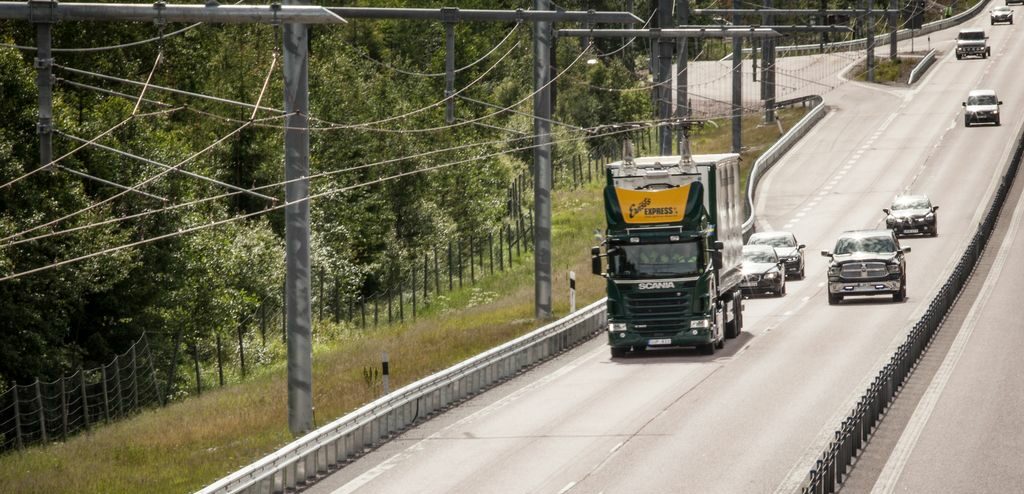
Giverny Knezevic, a research associate at IKEM’s mobility department who co-authored the recent study, commented: “There are a large number of stakeholders involved in operating ERS, including logistics companies, infrastructure operators and electricity suppliers. In the initial AMELIE project, we examined how to structure the billing processes between stakeholders as efficiently as possible. Based on that information, we produced a stakeholder model, which we’ve elaborated on and reviewed from a legal perspective in AMELIE II.”
Knezevic said that the German government's overall technology path decisions for decarbonising heavy freight transport will be made in the next few years.
She added: "This decision is elementary for the large-scale market ramp-up in Germany. Furthermore, the [ERS] technology needs more acceptance. When I started working on the AMELIE II project, I was a bit sceptical about the technology. But the more I learned about the subject, the more certain I became that this technology represents our best chance to make freight transport climate friendly in the near term. As far as alternative propulsion systems are concerned, green hydrogen has a much better image, but unfortunately, it’s not yet as readily available in the quantities needed."
Siemens is heavily involved in the trialling of HGV charging across Europe. In October this year Siemens Smart Infrastructure announced a strategic partnership with Volta Trucks, the full-electric commercial vehicle manufacturer and services provider, to deliver and scale eMobility charging infrastructure to simplify the transition to fleet electrification.
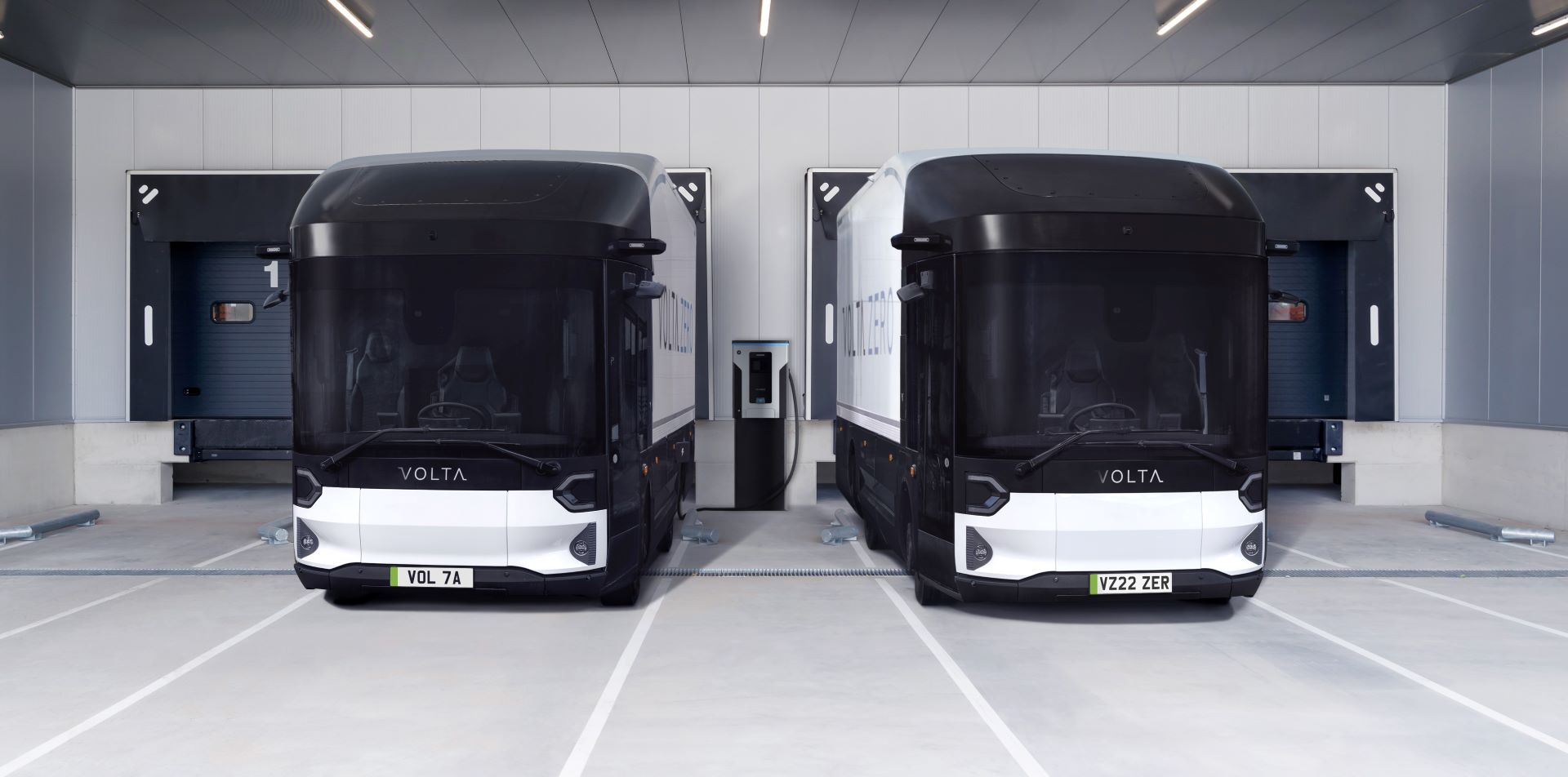
The companies will jointly seek to deliver turnkey solutions for fleets to transition to zero-emission urban transportation through an end-to-end, integrated and comprehensive feature set around charging, facility upgrading and energy management solutions. The offering will be designed to require minimal upfront investment or technical knowledge.
The partnership combines Volta Trucks’ approach to commercial fleet electrification and operational expertise through Truck as a Service, and Siemens’ global experience in software control systems, facility electrification, charging infrastructure, energy management, building equipment and Siemens Financial Services’ - and third parties’ - financing expertise in smart infrastructure projects.
In doing so, it will support Volta Trucks’ customers by providing infrastructure for full electrification aligned with their operational needs.
In June this year, Siemens launched Siemens Xcelerator, a new, open digital business platform featuring a curated portfolio of IoT-enabled hardware and software, a powerful ecosystem of partners, and a marketplace. The objective is to deliver digital solutions for commercial and industrial customers, together with key partners, in an agile, co-creation approach.
Thomas Kiessling, chief technology officer of Siemens Smart Infrastructure, commented: “Through our partnership with Volta Trucks, we intend to co-create Transportation as a Service solutions, and deliver Volta Trucks’ customers higher uptime, a commitment to reliability through performance-based contracts, and reduced energy expenditure. As commercial fleets look to meet sustainability goals and deliver cost effective, robust infrastructure solutions, we are pleased to be able to partner with Volta Trucks.”
The strategic collaboration is designed to lead, and actively manage, customers through the design of their fleet electrification journey. The technical infrastructure of the installations will be overseen by Siemens, including the hardware and software required to operate the charging and power distribution infrastructure for fleets of Volta Zeros, a purpose-built, full-electric 16-ton commercial vehicle, built for safer and more sustainable cities.
Through Siemens’ performance management platform, the partners will aim to continually optimise the entire operation to achieve higher uptime at minimum expenditure. This optimization approach will be powered by advanced analytical and simulation models and considers factors such as fleet duty cycles, charging times, battery life, optimal energy utilization and costs, and asset management.
Essa Al-Saleh, chief executive officer of Volta Trucks, said: “To deliver the electrification of urban logistics at pace and scale, we need operationally efficient electrification infrastructure aligned to the exact requirement of each fleet. In Siemens, we have a world-class partner with the innovative technical solutions our customers will expect. Together, we are confident that our partnership with accelerate the migration to electrification.”


